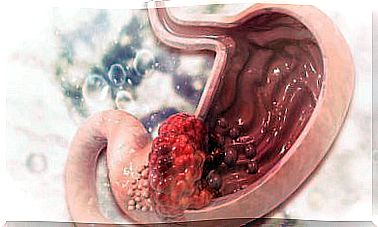Process For Medication Administration
Generally, when we present a medical condition we go to the nearest medical center to consult the ailment. Often, the administration of medication is needed to calm the symptoms that bother the patient.
Therefore, the medical team must take into account a series of guidelines in each clinical case during the treatment process. In most cases, the administration of medications is carried out by the nursing team.
In this way, the expert must possess a series of knowledge and ability to assess the individual conditions of each subject. You should also check the qualities of the medicine and its mechanism of action.
Likewise, the ultimate goal of drug administration will be to get a specific amount of the compound to act on the damaged area of the body. However, this end may not be achieved and an abnormal substance may accumulate in the region.
In the case of being insufficient, it is possible that the disorder is not solved correctly. If the drug has been administered excessively, it is possible that it presents toxicity on the patient. Thus, the subject will develop a series of symptoms of this problem that will indicate the error on the part of the medical group.
Medication administration process
In order to avoid errors, a series of checks should be carried out prior to administration . Among them we can highlight:
Suitable medication
There are a large number of pharmaceutical compounds that have a container or a similar name. If in doubt, it is important to consult with the corresponding doctor.
Review the patient’s full name
The goal is to administer the correct drug. For this, the identification of the same may be required. In no case should the group of specialists be guided by the room number or other unreliable parameters.
Check current medication and possible allergies
In this way, chemical interactions between the different drugs, which would cause an alteration in the treatment , can be avoided. This is because the action of the initial drug can be enhanced or decreased. On the other hand, possible allergic reactions can be avoided effectively.
However, adverse reactions may develop spontaneously and may vary in severity. The medical team may need to review the patient’s drug history prior to administering compounds.
Examine the dosage
It is important to assess the amount of medication, in case it seems out of balance for the patient. In that case, you should go to the right doctor to rule out any confusion in the process. The characteristics of the patient (age, sex, etc.) must also be taken into account in order to apply the most appropriate dose in each case. Also, the infusion rate and the amount of drug will be checked with the help of a syringe.
Administer the medication by the recommended route
The medicine can come in various forms. For example, liquid forms (such as syrups), solid forms (such as lozenges and tablets), etc. The following routes are generally used:
- Topical.
- Enteral.
- Parenteral.
- Intravenous or IV.
Apply the drug at the indicated time

In no case should the medicine be used more than half an hour before or after the scheduled time. The precise moment of the shot is important. To do this, you can write the hours from 1 to 24 h and thus avoid errors.
Adverse reactions
Make the patient aware of the effects and possible adverse reactions of the medications they are going to take. The medical team will also recommend that you learn the name of the medicine and the precise time of administration. You will also need to learn the proper storage method for each drug.
Other recommendations
It is advisable to record each drug that has been used immediately after its administration in the patient’s history.
It is also advisable to check all medical orders, not to leave medication in the patient’s room, not to borrow medications from other rooms, etc. On the other hand, if there is an error during the administration of medications, the corresponding doctor or supervisor of that clinical area should be consulted immediately.









